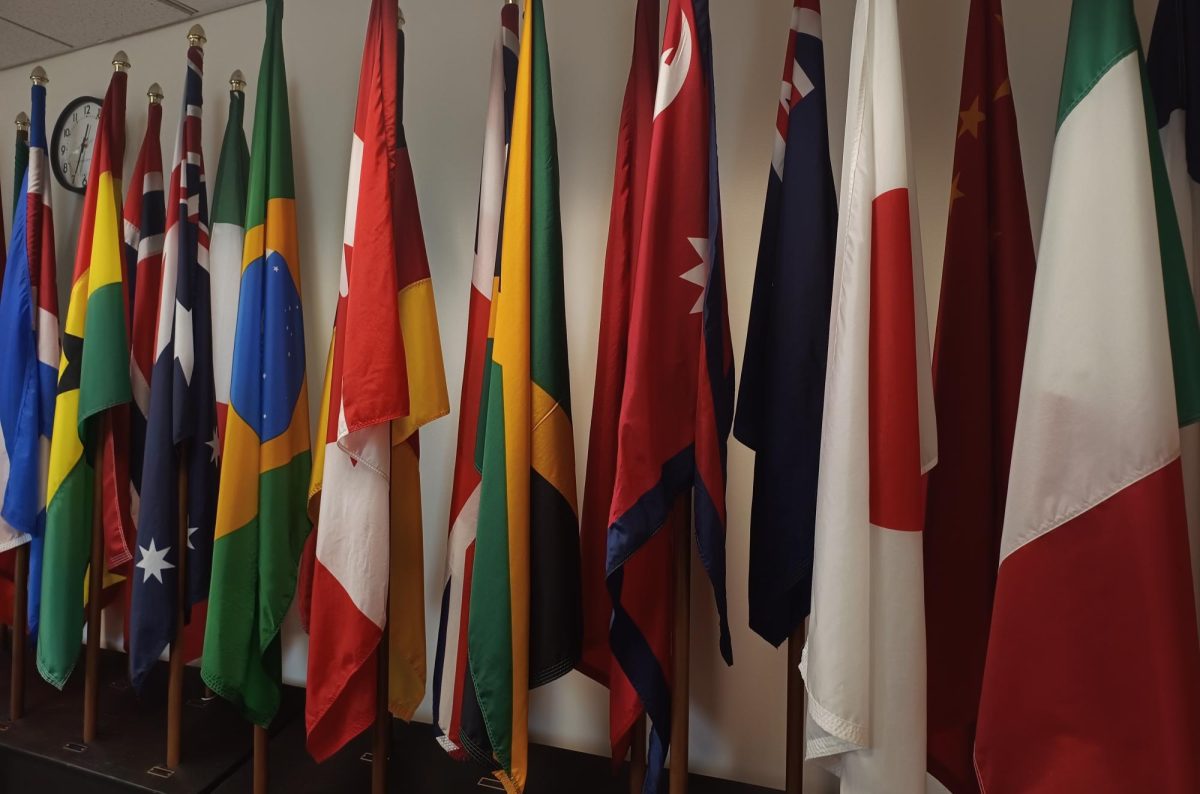By Graciella Dressler
SUNY Brockport students are stressed out, and it’s not just homework, grades, or student loans overwhelming them. Instead, it’s the constant surge of news about global crises. From film footage of racial injustices to articles about sex crimes and images of war, students are tuning out and turning off the news.
They are not alone.
According to the American Psychology Association (APA), around 73% of Americans feel overwhelmed by the number of crises in the world.

Following the increased amount of Americans who felt stressed out by news headlines, psychologists found a new diagnosis called Headline Stress Disorder (HSD). HSD can be the reason why those who excessively follow the news may be experiencing insomnia, stomach aches, headaches, irritability, lack of energy, and fits of rage.
This widespread phenomenon is afflicting many Americans, more specifically college students who becoming more politically and socially conscious.
According to the Associated Press, the news “keeps us informed of changing events, issues and characters in the world outside,” yet students would rather turn away from the news altogether.

However, there are a portion of students who, while feeling just as stressed, attempt to do their best to keep up with the news.
SUNY Brockport journalism student Shannon Blankenship follows topics in the news that she is passionate about. Blankenship is from Ohio, red state. When Roe V. Wade was overturned, Blankenship knew that she had to be properly informed about what would happen to her if the circumstances ever occurred.

“I wanted both perspectives, whether it be liberal or conservative. I wanted to understand more about what was going on from both angles. Then obviously just doing research for myself, but it’s more like things that can potentially impact me,” Blankenship said.
SUNY Brockport journalism professor Marsha Ducey helps Blankenship and other students understand the news by teaching them the importance of freedom of information.

“It’s important that we stay informed, particularly about what those in power are doing to people. If you don’t pay attention to the news and don’t know what’s going on around you and in the world, people will take advantage of you,” Ducey said.
Ducey understands how stressful a daily diet of news can be for students. She does her best to inform students that it is okay to feel certain emotions when viewing certain pieces of information.
“Be careful. Maybe take a little break. Don’t give up news. If you don’t pay attention to the news and don’t know what’s going on around you and in the world, people will take advantage of you,” Ducey said.
A student at Brockport who struggles with staying up to date with the news is sophomore and nursing major, Briana Thompson. She tries her best to be an informed citizen but admits it is difficult.
“I want to know what’s going on around me, but I don’t look at [stressful news topics] because that has more negative vibes and I would rather just live with more positive things. I avoid looking at the news. If an article pops up on my timeline on social media, I will swipe past it or if I turn on the TV and I happen to change it to a news channel, immediately change to the next channel,” Thompson said
Thompson said that if the news highlighted the more lighthearted topics of news, she would tune in more.
There is no cure for stress inducing headlines, but researchers such as Dr. Matthew Price of the Burlington Vermont University, have found more optimistic approaches to the news. By limiting time viewers spend on distressing stories and focusing on positive stories, the news can make the news easier to digest.

























